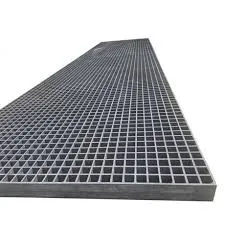
-
 Afrikaans
Afrikaans -
 Albanian
Albanian -
 Amharic
Amharic -
 Arabic
Arabic -
 Armenian
Armenian -
 Azerbaijani
Azerbaijani -
 Basque
Basque -
 Belarusian
Belarusian -
 Bengali
Bengali -
 Bosnian
Bosnian -
 Bulgarian
Bulgarian -
 Catalan
Catalan -
 Cebuano
Cebuano -
 China
China -
 China (Taiwan)
China (Taiwan) -
 Corsican
Corsican -
 Croatian
Croatian -
 Czech
Czech -
 Danish
Danish -
 Dutch
Dutch -
 English
English -
 Esperanto
Esperanto -
 Estonian
Estonian -
 Finnish
Finnish -
 French
French -
 Frisian
Frisian -
 Galician
Galician -
 Georgian
Georgian -
 German
German -
 Greek
Greek -
 Gujarati
Gujarati -
 Haitian Creole
Haitian Creole -
 hausa
hausa -
 hawaiian
hawaiian -
 Hebrew
Hebrew -
 Hindi
Hindi -
 Miao
Miao -
 Hungarian
Hungarian -
 Icelandic
Icelandic -
 igbo
igbo -
 Indonesian
Indonesian -
 irish
irish -
 Italian
Italian -
 Japanese
Japanese -
 Javanese
Javanese -
 Kannada
Kannada -
 kazakh
kazakh -
 Khmer
Khmer -
 Rwandese
Rwandese -
 Korean
Korean -
 Kurdish
Kurdish -
 Kyrgyz
Kyrgyz -
 Lao
Lao -
 Latin
Latin -
 Latvian
Latvian -
 Lithuanian
Lithuanian -
 Luxembourgish
Luxembourgish -
 Macedonian
Macedonian -
 Malgashi
Malgashi -
 Malay
Malay -
 Malayalam
Malayalam -
 Maltese
Maltese -
 Maori
Maori -
 Marathi
Marathi -
 Mongolian
Mongolian -
 Myanmar
Myanmar -
 Nepali
Nepali -
 Norwegian
Norwegian -
 Norwegian
Norwegian -
 Occitan
Occitan -
 Pashto
Pashto -
 Persian
Persian -
 Polish
Polish -
 Portuguese
Portuguese -
 Punjabi
Punjabi -
 Romanian
Romanian -
 Russian
Russian -
 Samoan
Samoan -
 Scottish Gaelic
Scottish Gaelic -
 Serbian
Serbian -
 Sesotho
Sesotho -
 Shona
Shona -
 Sindhi
Sindhi -
 Sinhala
Sinhala -
 Slovak
Slovak -
 Slovenian
Slovenian -
 Somali
Somali -
 Spanish
Spanish -
 Sundanese
Sundanese -
 Swahili
Swahili -
 Swedish
Swedish -
 Tagalog
Tagalog -
 Tajik
Tajik -
 Tamil
Tamil -
 Tatar
Tatar -
 Telugu
Telugu -
 Thai
Thai -
 Turkish
Turkish -
 Turkmen
Turkmen -
 Ukrainian
Ukrainian -
 Urdu
Urdu -
 Uighur
Uighur -
 Uzbek
Uzbek -
 Vietnamese
Vietnamese -
 Welsh
Welsh -
 Bantu
Bantu -
 Yiddish
Yiddish -
 Yoruba
Yoruba -
 Zulu
Zulu
Effective Use of Fiberglass Settlers in Water Treatment Processes and Industrial Applications
Understanding Fiberglass Settlers Applications and Benefits
Fiberglass settlers are integral components in various industrial and municipal processes, particularly in water treatment and wastewater management. Their design and functionality offer several advantages over traditional materials, making them a popular choice in modern applications. This article delves into the features, benefits, and uses of fiberglass settlers, highlighting their importance in promoting sustainable practices.
What is a Fiberglass Settler?
A fiberglass settler is a type of sedimentation tank made from fiberglass-reinforced plastic. These tanks are designed to facilitate the settling process of particles suspended in liquids, allowing for the separation of solids from water. The construction typically involves a composite material consisting of glass fibers and resin, resulting in a strong yet lightweight structure that provides excellent corrosion resistance and durability.
Features of Fiberglass Settlers
1. Corrosion Resistance One of the most significant advantages of fiberglass settlers is their resistance to chemical corrosion. Unlike metal tanks, which can rust or degrade when exposed to harsh chemicals, fiberglass settlers maintain their integrity over time, even in aggressive environments.
2. Lightweight and Durable Fiberglass is lighter than traditional construction materials, making it easier to transport and install. Despite its lightweight nature, fiberglass exhibits high strength, allowing it to withstand pressure and impact effectively.
3. Flexibility in Design Fiberglass settlers can be manufactured in various shapes and sizes to meet specific site requirements. This flexibility allows for custom solutions tailored to particular applications, optimizing space and efficiency.
4. Low Maintenance Due to their resistance to corrosion and biological growth, fiberglass settlers typically require less maintenance compared to other materials. This lowers operational costs and ensures longevity.
Applications of Fiberglass Settlers
fiberglass settler

1. Water Treatment Plants In municipal water treatment facilities, fiberglass settlers are used to remove suspended solids from water before it undergoes further purification processes. The efficiency of these settlers contributes to the overall effectiveness of water treatment, ensuring safe drinking water for communities.
2. Wastewater Treatment Fiberglass settlers play a crucial role in wastewater treatment plants, where they help separate solid waste from effluent. By effectively settling solids, these settlers facilitate the process of treating wastewater, ultimately protecting the environment and public health.
3. Industrial Applications Various industries, including food and beverage, pharmaceuticals, and chemical processing, utilize fiberglass settlers to manage and treat process water. These settlers help to ensure compliance with environmental regulations by effectively managing waste streams.
4. Stormwater Management Fiberglass settlers are increasingly employed in stormwater management systems to capture and remove sediments and pollutants from runoff before it enters natural water bodies. This application is vital for protecting ecosystems and maintaining water quality.
Environmental Benefits
The use of fiberglass settlers contributes positively to environmental sustainability. By improving the efficiency of water and wastewater treatment processes, these settlers help to minimize the discharge of harmful pollutants into the environment. Furthermore, their low maintenance and longevity reduce the need for frequent replacements, which can lead to reduced waste generation.
Additionally, as industries and municipalities seek to comply with stricter environmental regulations, adopting fiberglass settlers can provide a proactive solution. These settlers not only enhance operational efficiencies but also demonstrate a commitment to sustainable practices.
Conclusion
In summary, fiberglass settlers stand out as a reliable solution in water treatment and wastewater management applications. Their unique properties, such as corrosion resistance, lightweight design, and low maintenance requirements, make them ideal for various industries. As the global focus on environmental sustainability grows, the adoption of fiberglass technology in settling processes will likely increase, promoting cleaner water and healthier ecosystems for future generations. The strategic implementation of fiberglass settlers exemplifies how innovation can lead to more efficient and environmentally friendly practices across diverse sectors.









